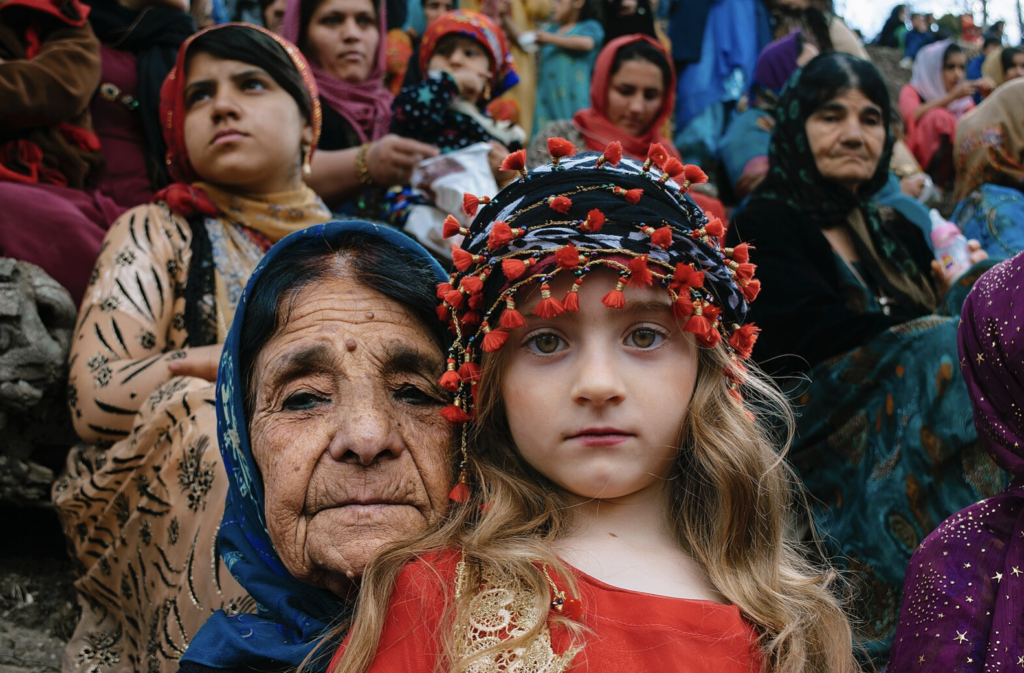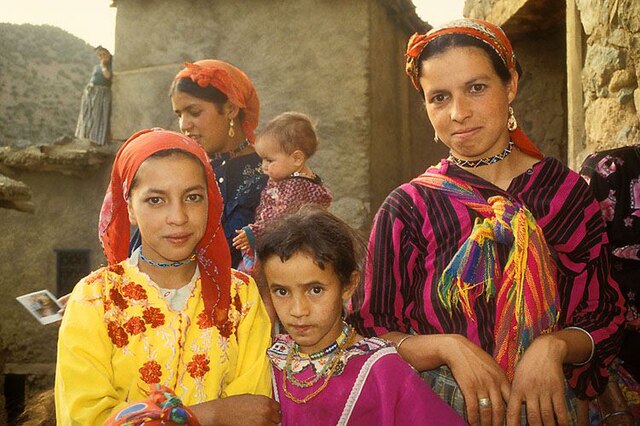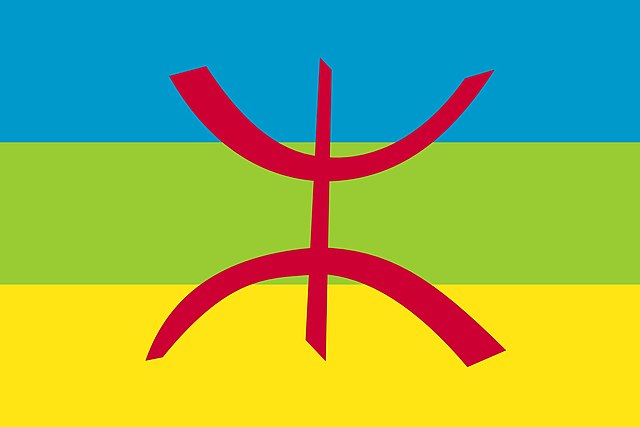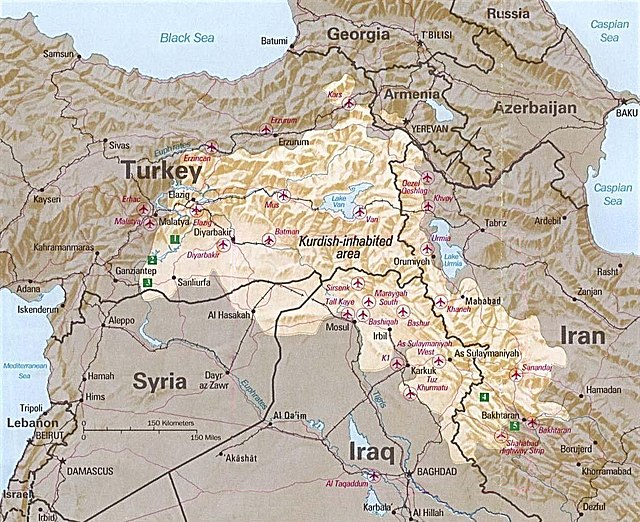Voices in the Shadows: The Political Influence of Religious and Ethnic Minorities in the Arab World

Photo source: Wikimedia Commons
By: Rania Basria / Arab America Contributing Writer
In the Arab world, a diverse tapestry of cultures, languages, and faiths coexist with the dominant Arab identity. Religious and ethnic minorities, including Christians, Druze, Kurds, and Berbers, have made major political, social, and economic contributions, influencing the region’s past and future. Arab America content contributing writer, Rania Basria, examines the roles that various minority groups play in the Arab political landscape, as well as their interactions with majority Arab communities.
Minority groups have frequently existed in the Arab world prior to the establishment of modern governments. For example, Christians have lived in the Middle East since the beginning of Christianity. Berbers, also known as Amazigh, have inhabited North Africa for thousands of years, even before the Arab Islamic invasion. Kurds and Druze, albeit fewer in number, have historically retained separate identities while being distributed over numerous state borders. Each minority has been distinguished by its capacity to adapt and, in many cases, maintain its distinct identity amid larger, majority-Arab cultures.

Political Representation
Political representation and engagement among various minority groups varies across the region, depending on each country’s social fabric, legal frameworks, and historical links. In Lebanon, for example, the democratic system openly assigns seats in government to religious groups such as Christians and Druze. This political inclusion has enabled Lebanese Christians and Druze leaders to play important roles in establishing national policy and stability, albeit within a context fraught with sectarian warfare.
The Kurds, a unique ethnic group with a shared language and culture, have had a particularly tumultuous relationship with the Arab-majority governments of Iraq and Syria. Decades of confrontation with central governments culminated in the foundation of Iraq’s Kurdistan Regional Government (KRG), which has significant autonomy, including the management of its oil exports. The KRG’s existence demonstrates the Kurds’ political resiliency and positions them as key stakeholders in Iraq’s political landscape, negotiating for increased autonomy, resources, and security guarantees.
Meanwhile, in North Africa, the Berber identity has experienced a revival in recent decades. In Morocco, reforms have established the Tamazight language as an official language, representing political acceptance of Berber identity. The Berbers’ growing visibility in political discourse reflects both ethnic consciousness and administrations’ desire to incorporate them into the national narrative, especially as younger generations seek more inclusive representation and rights.

The Unique Cultures of Minorities
Beyond politics, these minority have made substantial contributions to the Arab world’s social and cultural tapestry. Christian communities throughout the region have made significant contributions to the educational and healthcare sectors, establishing institutions that serve individuals from diverse origins. The Jesuit educational network in Lebanon, for example, is well-known for its commitment to academic achievement and interfaith engagement, which helps to bridge communities that would otherwise be divided.
The Druze population, which is small and primarily centered in Lebanon, Syria, and Israel, is noted for its strong sense of identity and solidarity. The Druze maintain different social norms that distinguish them apart while also fostering harmony with their Arab neighbors through diverse community institutions. Despite tight endogamy within the community, the Druze retain political connections that bridge sectarian lines, allowing them to mediate crises and play important roles in regional governance.
The Kurds have also had an enduring cultural impact, particularly in music, literature, and dance, which honor Kurdish heritage and fortitude. Similarly, the Berber revival movement in Algeria and Morocco has sparked a rebirth of indigenous languages, art, and customs, impacting mainstream cultural outputs and pushing a more inclusive narrative across North Africa.
The Kurds have also left an indelible cultural mark, particularly in music, literature, and dance that celebrate Kurdish ancestry and resilience. Similarly, the Berber revival movement in Algeria and Morocco has rekindled indigenous languages, art, and practices, influencing mainstream cultural outputs and promoting a more inclusive narrative throughout North Africa.
A Bitter-Sweet Situation
The Kurds, notably in Iraq’s Kurdistan region, have taken use of the area’s oil wealth, utilizing natural resources to create economic opportunities. However, their economic prosperity is linked to political stability, since disagreements with the central Iraqi government over oil income continue to cause economic uncertainty. In contrast, Berber inhabitants in rural North Africa remain economically disenfranchised, frequently excluded from development plans, posing socioeconomic issues that call for regional economic reform and equal access to resources.
These minority communities’ interactions with majority Arab populations are complicated, defined by historical grievances, mutual reliance, and shared goals. In certain cases, such as Lebanon, inter-religious relations are institutionalised within a sectarian political framework. While this arrangement has allowed for representation, it has also reinforced divisions as each group strives to defend its interests in a delicate balance of power.
Kurds in Iraq and Syria have faced violent repression, resulting in strained relations with Arab-majority administrations. However, new anti-extremism partnerships have brought Kurdish and Arab populations together in specific settings, creating cooperation out of need. Berber activism in North Africa is increasingly focused on cultural and linguistic rights, which has led to collaboration with Arab organizations advocating for larger democratic changes and human rights.

The Path Forward
The political and economic contributions of these minority groups highlight their significance in the Arab world, as well as the necessity for inclusive policies that acknowledge their rights and ambitions. Efforts to promote diversity in political representation, economic participation, and cultural acknowledgment will be critical in building unity and stability. Constitutional improvements that protect minority rights, anti-discrimination laws, and educational reforms that encourage diversity can all contribute to close the gap between minority and majority groups.
Furthermore, as the Arab world faces issues like as globalization, climate change, and regional conflicts, active engagement from all communities—majority and minority alike—will be critical. These voices in the shadows, from Berbers campaigning for sustainable rural development to Christians constructing inclusive educational institutions, are already defining the Arab world’s future resilience and pluralism.
In this view, minorities’ ongoing contributions and struggles are more than just side stories; they are critical to understanding the dynamics of Arab society. Their voices may have been silenced for a long time, but their impact on creating a more inclusive and harmonious community cannot be underestimated.
Check out our blog here!








